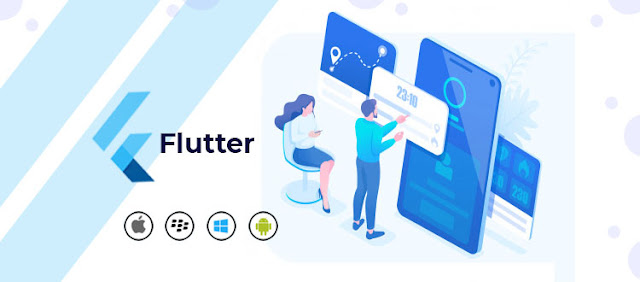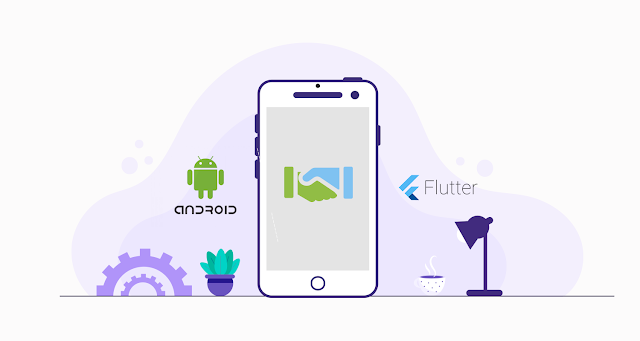In today’s digital era, people across the globe have turned towards the online platform to expand business. Many startup in different corners of the world fail because of the wrong choice of the mobile app development platform. So, which option to choose?
In case to use a hybrid platform for your app, Flutter App Development Services is the perfect choice in 2021. Flutter saves both time and money to offer excellent User Experience. The blog focus on the ways Flutter sets trends in app development but, before that, let us have a discussion about Flutter.
Introduction to Flutter
Flutter is a UI toolkit of Google, used to build native apps and engage User Interface from a single codebase. It is the perfect option for both entrepreneurs and experienced professionals to deliver high featured applications at an affordable price.
Key Stats Regarding Flutter
Compared to other languages, Flutter is the leading and most secured frameworks. If you hire mobile app developer, they will customize the framework features in the most fruitful manner with a proper guarantee.
It was introduced to users in 2018 and, by 2020 end it gained over 2 million users with its performance as well as features.
Google launched the framework for web, mobile and desktop. According to a survey, the number of Flutter-based apps has increased from 50K to 100K.
The Ways Flutter is Setting Trends in Mobile App Development
1. Single Codebase
The feature of a single codebase makes the Flutter different from others. The single codebase is free from any sort of restrictions, where the developer need to put different codes for different platforms. Flutter developers have to code only once making it the most preferred choice. The cross-platform application development lowers the efforts of both users and developers. This way, it becomes simple to design, speed, and overall quality of the mobile app.
2. Brilliant Code and App Testing
The process followed by Flutter App Development Company is very subtle and proficient. Due to the single codebase, the whole process becomes simple and fast. The single codebase enables reuse of the code in different plugins, reducing time consumption. Similarly, a single test is relevant to verify the features and functions. This single codebase encourages many companies to hire Flutter services.
3. ‘Hot’ Features
Flutter application development has become quite popular because of “Hot Reloading” and “Hot Restart” features. The developers can check minute changes in the code within seconds with the support of these features. In brief, the features permit developers to see the step-by-step progress. This specific feature helps to boost productivity and address the problems on time.
4. Suitable for MVP
Flutter framework allows showcasing your business MVP to the investors. Separate development is not needed for Android and iPhone. You can consult Mobile App Development Company and discuss your dream business model with them.
This feature will guide developers to save both time and money by skipping the development and test project prototypes. Flutter helps to quicken as well as ease the development process. The framework is compatible with Firebase, and this compatibility does not need any separate back-ends to create MVPs. This is how Flutter will help you to achieve success in the business ground.
5. Simple Programming Language
Flutter works with the ‘Dart’ programming language which has been created from Google. Dart is a single-source language, is used for general purpose. Developers having minimal knowledge of programming can work on this language flexibly. The less-experienced developers find ‘Dart’ easily accessible. Dart is not only for mobile app developments but also works in development of web, desktop and server applications.
Wrapping Up
From the above discussion, you must have realized why Flutter is the most preferred mobile app development platform. Flutter can completely transform the face of your business with its high-quality features. The cost-effective development process attracts companies worldwide.



